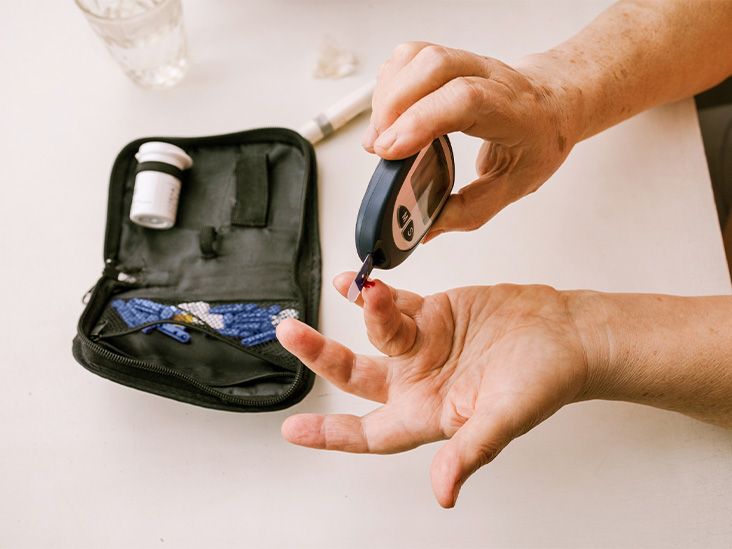Meningitis refers to swelling and inflammation of the meninges, which make up a protective layer of membranes covering the brain. Meningitis can result from a contagious infection, due to an infection in the body spreading to the brain, or as a result of drugs or injuries.
Meningitis can be fatal,
Viral meningitis is the
The symptoms of meningitis can include a stiff neck, headache, confusion, fever, nausea, and vomiting.
This article will explain how a person might get meningitis according to its different types. It will also outline some steps a person can take to prevent meningitis.

The ways a person might get meningitis depend on the type of disease. Some types are not contagious at all, while some are more easily transmissible than others.
Bacterial meningitis: Eyes, nose, and mouth secretions, birth, blood, and unclean hands
Bacterial meningitis
Group B Streptococcus, for example, are normally harmless bacteria that an infant can get during birth. They may spread to the brain, causing meningitis.
The bacteria Streptococcus pneumoniae are the most common cause in people of most other ages, while bacteria called Neisseria meningitidis most commonly cause meningitis in children aged 11–17 years.
A person can get bacterial meningitis from
- Group B Streptococcus and Escherichia coli: These bacteria can pass to infants during birth.
- Haemophilus influenzae type b and S. pneumoniae: Coughing or sneezing near other people who then breathe in the bacteria causes them to spread.
- N. meningitidis: Saliva can carry these bacteria via respiratory or throat secretions. They can spread through coughing on or kissing someone or through living in close quarters for a long period of time.
- E. coli: Eating food prepared by a person who did not wash their hands well enough after using the bathroom can also spread these bacteria.
Viral meningitis: Eye, nose, and mouth secretions, blood, semen, bites, urine, and droppings
This form of meningitis
The most common cause of viral meningitis is a group of infections called enteroviruses. Mumps, herpes, measles, and West Nile virus may also spread to the meninges, causing viral meningitis.
Each virus has a slightly different way of spreading. For example:
- Mumps: This virus
can spread by coughing, sneezing, talking, sharing items with saliva on them, or engaging in close contact activities. - Non-polio enteroviruses: These viruses
can spread through feces, saliva, nasal mucus, sputum, and blister fluid. - Epstein-Barr virus: This virus
can spread through bodily fluids such as saliva. A person can also get it after organ transplants, sexual contact, and blood transfusions. - Lymphocytic choriomeningitis virus: This infection
can occur if a person exposes broken skin, the nose, the eyes, or the mouth to fresh urine, droppings, saliva, or nesting materials from rodents with the infection. - West Nile virus: This virus
usually spreads via a bite from an infected mosquito.
Fungal meningitis: Fungi from the body, soil, and droppings
Fungal meningitis is very rare in the United States. It
Organ transplant recipients and people with weak immune systems should avoid exposure to fungi through soil or animals, as this increases their risk of fungal meningitis.
Fungi that can cause fungal meningitis include:
- Candidiasis: This fungus lives in the body and can cause yeast infections, thrush, and some other skin infections.
- Cryptococcus: This fungus lives in some soil, as well as on wood and bird droppings.
- Histoplasma: This fungus primarily lives in areas with bat droppings.
- Coccidioides: This fungus lives in soil, mostly in the southwestern U.S.
- Blastomyces: This fungus lives in soil and decaying wood.
Digging in contaminated soil, having exposure to animal droppings, and having untreated fungal infections may increase the risk of fungal meningitis.
Parasitic meningitis: Raw or contaminated food, feces, and soil
This
The most common ways that people come into contact with these parasites include:
- eating raw, undercooked, or contaminated food
- getting animal feces in the mouth, such as when digging in dirt and then eating without washing the hands
- coming into contact with contaminated soil, especially if a person gets the soil in their mouth
Amebic meningitis: Swimming in infected waters and nasal rinsing
This type of meningitis is
Most cases in the U.S. happen when people swim in warm water. Between 1962 and 2019, there were just 148 reported cases in the U.S.
Preventing water from going up the nose in pools, lakes, and other bodies of water can reduce the risk of getting this type of meningitis.
There is a
Noninfectious meningitis: Head injuries, surgery, cancer, and certain medications
Noninfectious meningitis occurs due to diseases or injuries, not contagious infections. It may happen suddenly, such as when a head injury causes the membranes around the brain to swell. It can also develop gradually, such as when a poorly managed disease attacks the meninges.
Some
- a recent head injury or brain surgery
- medications or
reactions to medications - cancer
- certain chronic conditions, such as lupus
Some strategies that can help reduce the risk of getting meningitis include:
- Vaccination: Get vaccinated against common illnesses and against infections that can cause meningitis. The meningococcal and pneumococcal vaccines
can prevent some types of bacterial meningitis, and the influenza vaccine can reduce the risk of flu-related meningitis. - Cleanliness: Practice frequent hand-washing and other infection prevention strategies.
- Avoidance: Avoid people who are sick, and do not send sick children to school. People with fevers should stay home from work and avoid crowds, even if medication controls the fever.
- Protective gear: Wear gloves or other appropriate protective equipment when working with animals or digging in soil.
- Be aware of contaminations: Avoid swimming in potentially contaminated water.
- Discuss risks with a doctor: For people taking drugs that weaken the immune system and those with conditions that damage the immune system, ask a doctor about strategies for reducing infection.
- Discuss testing with a doctor: If a person is pregnant, they can ask about testing and treatment for group B strep, which is a common cause of meningitis in infants.
The ways a person can get meningitis depend on what has caused it. Causes include bacteria, viruses, fungi, parasites, amebas, trauma, and medications. Infants can also get bacterial meningitis during childbirth.
To protect themselves, people can try to keep up to date with vaccinations, be aware of potential sources of contamination in their immediate environment, and discuss risks and testing with a doctor.
People with stiff necks, severe headaches, changes in their thoughts or moods, and other serious symptoms should seek immediate medical care if they believe that they are at risk of getting meningitis. Receiving early treatment can reduce the risk of dying and may help prevent long-term complications.


